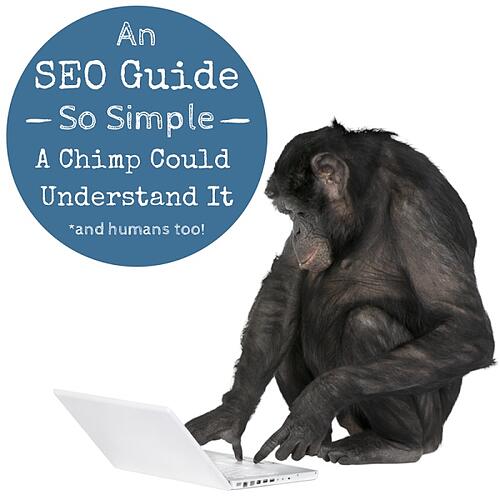5 Tips to Optimize Your Business for Inbound Marketing Success

 It's easy to use analytic suites to determine the keywords that help your site rank well. Unfortunately, determining which keywords reliably drive traffic to your website is just the first of many steps in your journey to inbound marketing success.
It's easy to use analytic suites to determine the keywords that help your site rank well. Unfortunately, determining which keywords reliably drive traffic to your website is just the first of many steps in your journey to inbound marketing success.
If you're at an earlier stage of your inbound marketing lifecycle, you might not have a firm handle on the ideal keywords for your business. Even if you do have a good grasp, you might be struggling to find the right inbound optimization strategies or lost in a sea of seemingly irrelevant keyword optimization tips. In either case, it's critical to cut through the noise and implement easily replicated strategies that optimize your business for inbound marketing success.
These five tips have stood the test of time (and numerous search engine algorithm updates).
1. Employ A/B Testing for Landing Pages
A compelling landing page is a great way to boost optimization for a particular keyword that isn't ranking well. A landing page can also help reinforce the power of a keyword that's performing exactly as – or better than – you intended.
In either case, create landing pages that target specific keywords. However, don’t stop there: to determine the effectiveness of each landing page, employ a simple A/B testing framework that creates a side-by-side performance comparison for two similar versions of a particular keyword's landing page. Your A/B test should measure pages for search visibility (a traditional SEO value), as well as overall click-through performance (inbound marketing relevance). The version that offers the best combination of these two factors should be your long-term choice for inbound marketing success.
2. Leverage Search Remarketing Lists
These days, online marketers get more than one shot at prospective website visitors. The best way to re-attract folks who have already seen your website is to bid on "remarketing lists for search ads" keywords. RSLAs are specific to users who have already visited your website and are continuing to search for a relevant keyword. Since these types of users are often further along in the buyer's journey and typically convert at higher rates than first-time visitors, they're a potentially lucrative source of inbound traffic that can be directly attributed to increased sales.
To utilize remarketing lists fully, you need to create a parallel ad campaign that may leverage a modified search term or exact-match keyword. In either case, your bid can be higher than it might otherwise be for "first-run" traffic due to remarketed users' higher conversion rates.
3. Use Partial and Modified Keyword Matches Throughout Site Copy
Although archaic practices such as keyword stuffing and cloaking have thankfully gone by the wayside, it's still important to include target keywords and critical junctures within your site content. In addition to including an exact-match keyword in your title tags and within the first paragraph of a given page's content, you should include one or two additional exact matches throughout each relevant page.
Again, don't stop there. Partial-match or modified keywords may be even more important to your overall SEO and inbound marketing strategies. For instance, a target exact-match keyword of "inbound marketing strategies" has partial-match keywords such as "inbound marketing," "inbound strategies" and "marketing strategies." Modified or related versions of this keyword might include "inbound traffic strategies" and "strategic inbound marketing." Sprinkling these terms throughout your site content creates additional opportunities to boost search rank and drive inbound traffic.
4. Tap into Non-Traditional Marketing Strategies Within SERPs
Inbound marketing and SEO aren't synonymous. Therefore, there's no rule against tapping into novel marketing strategies (those that have little to do with traditional SEO) to drive inbound traffic.
To start, take a closer look at the first results page for your target keyword. Pay special attention to results that don't belong to direct competitors. Depending on your industry, these results might lead to product resellers, online consumer review sites or news aggregators.
Each non-competitive result represents one or more potential opportunity to drive traffic back to your site. For instance, you might approach a reseller about buying display or PPC ads on its website. You might explore a partnership with a review site that includes a positive review and link back to your site. You might even look into placing branded content on a news aggregator site. The key lies in knowing how to spot opportunities - and when to take advantage of them.
5. Don't Forget Meta Descriptions
In a recent blog post, I discussed pervasive, outdated SEO myths and an entire section was devoted to the use of meta descriptions. It's worth reiterating that meta descriptions aren't as important to SEO, keyword optimization or inbound marketing as they used to be.
However, it's a bridge too far to say that meta descriptions don't matter at all. When properly used, meta descriptions can set your website apart from the competition and give searchers a final shove toward clicking on your result. In fact, a well-crafted meta description helps your website outperform its search rank, pushing a site that ranks third or fourth into the click-through tier normally reserved for first, or second place sites.
To create a good meta description, incorporate one or two target keywords in a manner that makes sense. This reinforces the organic SEO value of those keywords and immediately draws searchers' eyes to the description's text. Likewise, make sure the description is punchy and to the point. It should neatly encapsulate the purpose of your site or page and compel users to click on your result. If you're able to achieve this aim more consistently than competing sites, your rank for your target keyword will improve. Better lead generation and conversion metrics, the hallmarks of inbound marketing success, are sure to follow.
Use Keyword Optimization to Boost Your Online Visibility
Optimizing your website for inbound marketing success isn't rocket science. With that being said, it's not particularly easy or fast. To ensure that your website is performing as well as it possibly can for the keywords that matter most, it's crucial to follow the best practices outlined above. In particular, optimizing your landing pages and judiciously employing remarketing lists can make a huge difference in the grand scheme of your campaign.
To optimize your business for inbound marketing success, request a free Inbound Marketing Assessment . It’s a great start to help you learn how to get more traffic, convert more leads and close more sales.







